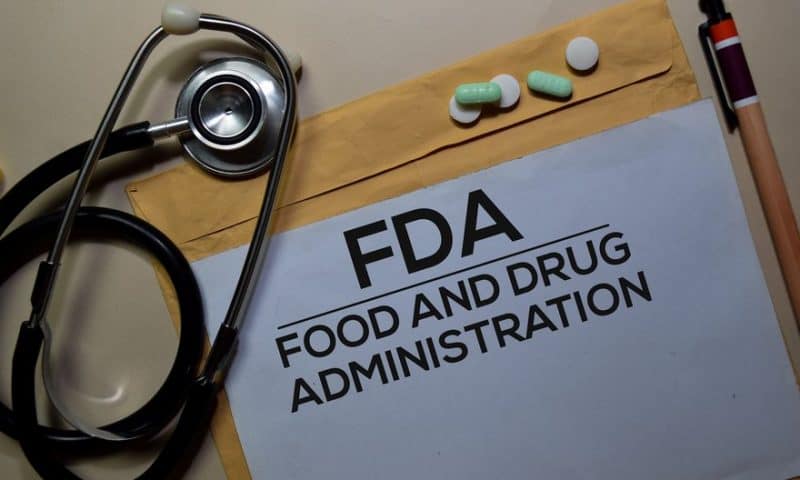The FDA seems to have set a new regulatory standard with its accelerated approval of Biogen’s aducanumab in Alzheimer’s disease. So now what?
Alzheimer’s has long stymied the pharmaceutical industry, leaving numerous failed candidates and research dollars in the dust. Perhaps closest on Biogen’s heels is Eli Lilly with donanemab, which investors said would surely benefit from the FDA decision. Many analysts and industry watchers spent the hours after the FDA announcement opining about what Biogen’s triumph meant for everyone else—and whether the new standard set by the FDA was a good one.
Aducanumab was submitted on data from a pair of conflicting trials that spurred an FDA advisory panel to give the medicine a thumbs-down in November. Patients in one trial saw a modest improvement in dementia symptoms, while the other study showed patients taking aducanumab actually fared worse than those on placebo.
Rather than approve the controversial therapy outright, the FDA opted to give a tentative green light under its accelerated approval pathway, which is for drugs that could provide meaningful benefit over existing treatments for a serious or life-threatening disease. Data to support these approvals can be based on a surrogate endpoint.
In the FDA’s words from the aducanumab approval announcement, the pathway addresses “a drug for a serious or life-threatening illness that may provide meaningful therapeutic benefit over existing treatments when the drug is shown to have an effect on a surrogate endpoint that is reasonably likely to predict a clinical benefit to patients and there remains some uncertainty about the drug’s clinical benefit.”
In this case, the FDA agreed that the data showed aducanumab can lower the buildup of amyloid plaques in the brain, which is expected to have an impact on cognitive decline in Alzheimer’s.
“At the end of the day, we followed our usual course of action when making regulatory decisions in situations where the data are not straightforward,” the FDA said.
But the reaction to the decision suggested the FDA’s actions were anything but business as usual and have set a new precedent in Alzheimer’s disease.
Analysts from Evercore believe the FDA’s approach here will spur the industry to focus more on biomarker data. But the link between plaque reduction and a clinical benefit has not been established.
Before the approval, Mizuho Senior Biotech Analyst Salim Syed predicted that a positive decision for Biogen would help establish that link and open the door for other drugs targeting a similar mechanism as aducanumab. Syed listed Lilly’s donanemab, Eisai’s BAN2401, Pfizer and Johnson & Johnson’s bapineuzumab and Prothena’s PRX012 as possible beneficiaries of a yes nod on aducanumab.
Jefferies similarly rang the bell for Prothena following the FDA decision, saying the FDA’s focus on the surrogate endpoint represented a lower hurdle for future therapies.
“While we anticipate there will be some debate whether FDA has truly lowered the bar, today’s news is clearly a positive for [Prothena],” wrote Jefferies’ Michael Yee.
The Alzheimer’s Association, which lobbied hard for the medication, hopes the Biogen approval will start a waterfall of new drugs in the class.
“This FDA drug approval ushers in a new era in Alzheimer’s treatment and research,” said Maria Carrillo, Ph.D, the association’s chief science officer. “History has shown us that approvals of the first drug in a new category invigorates the field, increases investments in new treatments and encourages greater innovation.”
Back in April, the government watchdog group Public Citizen called for an investigation into the “unprecedented and inappropriate close collaboration” between Biogen and the FDA during the regulatory process for aducanumab. That same group is now slamming the agency’s actions again.
“The FDA’s decision shows a stunning disregard for science and eviscerates the agency’s standards for approving new drugs,” said Michael Carome, director of Public Citizen’s Health Research Group. “Because of this reckless action, the agency’s credibility has been irreparably damaged.”
Public Citizen said the approval will give false hope to Alzheimer’s patients and—contrary to what analysts have suggested—impede development of further treatments.
A quick survey of Biogen investors conducted by Mizuho seemed to share the watchdog’s sentiment that the FDA’s credibility has been harmed by the approval. Investors called the decision political, surprising, “a disgrace”, “intellectually insulting” and “crazy.”
Other commentary from the Mizuho survey suggested that Lilly will be the real winner should donanemab ultimately make it to the FDA.
Rarely does the FDA stray from an advisory committee’s decision, although the agency doesn’t have to follow their recommendations. In this case, the FDA seemingly felt the need to explain itself to the members of the committee for the “valuable” guidance on aducanumab.
“We appreciate the comments from the advisory committee members and can assure you that we listened carefully and viewed the meeting proceedings as an important source of input as we discussed the appropriate action,” wrote Billy Dunn, M.D., director of the FDA’s Office of Neuroscience at the Center for Drug Evaluation and Research, in a letter released today.
The agency said the conditions were met for the accelerated approval pathway, and Biogen will have to conduct further studies to establish clinical benefit.
“We concluded that these requirements were met for aducanumab, with substantial evidence that the drug reduces amyloid beta plaque, and that this reduction is reasonably likely to predict clinical benefit,” Dunn said.
Now, Biogen and Eisai will have to conduct a phase 4 study to provide that evidence and make good on the FDA’s claim.

